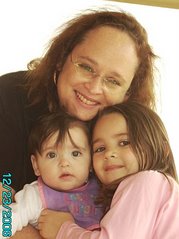Readings: Egbert Ch. 2, Cummins Ch. 2, Richardson Ch. 3:
The concept of multiliteracies, as described here, refers to a broader definition and interpretation of literacy than simply reading and writing, book-based, linear forms of literacy. These multiliteracies include all literacy practices students may participate in, both in and out of school, such as storytelling, using new technology (computer-based), communicating in different languages, or engaging in other culturally enriching and/or mentally stimulating activities. This ties right in with Egbert's idea of authentic materials being something the student believes is authentic and something the students choose as useful to their own learning and to their lives outside of class. I agree to some extent, because students who choose what they work on would have to be motivated, but I also agree with Michael's point in class that that is not enough. I believe there is a balance between what the students want to know and need to know that we (teachers/facilitators) can provide so they stay challenged and continue to progress. I am motivated when I study what I like, but, even so, I can get easily bored because sometimes what I like is something I already know well. However, I am a big fan of student input, student surveys, etc., and I have seen the value of giving students some leeway in choosing a topic for discussion or for writing--they often produce more language, interact with each other more, and participate more enthusiastically, so there is definitely a good reason to use their input.
Blogs can add to this motivation level for the students--even in a classroom environment, the amount or type of unique input a blogger can add to his or her website is pretty much limitless. So, students may begin with a blog (like we are) by simply responding to an assignment, but may be inspired to read other blogs that may in turn inspire them to add to their blogs and create something truly individualized. The opportunity for blogs to draw out the individual personalities of the bloggers and also to join people together in their common ideas or interests is vast. It is hard to get onto the blogosphere without perusing at least a few other blogs. The more reading we do, the more we can expand our literacy, and that is absolutely true for our ELLs, too.
Creating this blog was easy; logging back in has been difficult every time. This has caused a little anxiety, because I think of the time I am wasting when I have too many other things to do. I hope this is a temporary kink in the system and not a recurring one. I am excited to begin blogging about ESL and am already trying to think of more applications for these great tools we are practicing with in class.
Subscribe to:
Post Comments (Atom)


4 comments:
Hi Joleen,
Great job on your prompt. You nailed the concept of multiliteracies. And I appreciate your comments about authentic learning. I agree that it can't just be about what students want to learn. Often students don't know what they would be interested in because there have never heard of it before. I really enjoyed the core-curriculum requirements of my BA-degree program (where you take Intro to everything courses), as this exposed me to a wide variety of fields and knowledge and I didn't know much about. I think we can still take important information that students need to know (whether they are interested in it or not initially) and teach it in authentic ways that will make it interesting for them. Technology can be an effective way to do this.
Glad you are enjoying this blogging stuff. Sorry you had trouble logging in? What seemed to be the hold up?
-Dr. Wright
Joleen,
I agree with you 100% when it comes to motivation. When students are eager to learn they will give you all that they can do and more. I am interested to see how my students will do with blogs. I will have to let you know how it goes.
Lisa Morales
Hola Joleen!!
I agree with you about the using of blogs with the students. It will motivate and it will play a highly significant role in promoting literacy for our ELL learners. I like how you explain the concept of students' multiliteracies, the knowledge and skills that they bring outside of the classroom. We as teachers can engage and facilitate their learning by using something that the students choose as helpful and fun to their own learning in and outside our the classroom.
I am also excited about using blogs in the class, cant wait to learn new applications too! :)
A good summary of Cummins, et al. I think the concept of overt instruction is a good way to balance out the student centered classroom. All learning is not deduction but is a critical skill to be learned. Teachers become guides, facilitators, coaches, multiple positions in the classroom, electronic or otherwise. It is our job to create the context for learning and exploration.
I agree with the logging back in - just a matter of practice I suppose. Trying to keep all the logins and passwords straight in this world... I'll be glad when they get the implant perfected. Your DNA will be your password.
Post a Comment